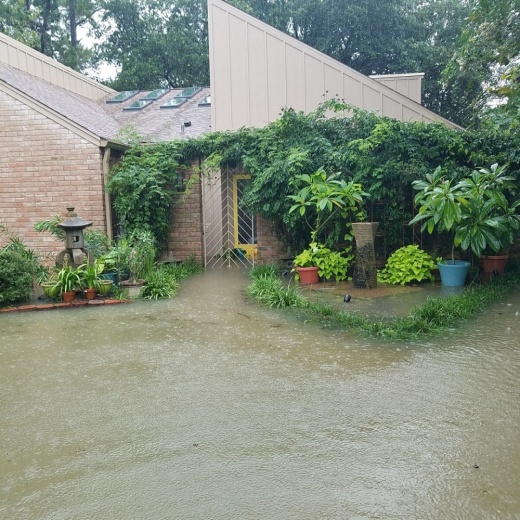Lyn and Mike Jenkins said they did not know their Ponderosa Forest home, which they intended to live in for the rest of their lives, had already flooded twice when they bought it in 2007. A decade later, Hurricane Harvey hit in 2017, and Mike recalls thinking about all the remodeling work and memories that disappeared in the floodwaters as a rescue boat carried him to safety.
"Now every time there's a hurricane ... I get a little bit of anxious," Lyn said. "I'm thinking, 'Okay, what do I need to get off the floor. There's a hurricane that's possibly coming. What do I need to get off the floor to make sure it doesn't get destroyed while we exit. That's always going to be on my mind."
The Jenkins knew they were buying into a flood-prone area but misunderstood the concept of a 100-year storm as occurring once every 100 years rather than a 1% chance of occurring every year. Had they better understood the risk, Lyn said they may have moved to higher ground.
“Neither he nor I had ever lived in a flood-prone area before,” Lyn said. “We knew we were buying in a 100-year flood plain because they required insurance, but it's a 100-year flood plain. So you wonder where we are within 100 years.”
Paul Eschenfelder, the founder of Cypress Creek Association—Stop the Flooding, an organization that educates residents about flooding, said that many residents in the Cypress Creek watershed are confused about the risk of flooding.
“They should be told they're in a 100-year flood plain, but ... that's a specialized phrase,” Eschenfelder said. “I don't think they understand the risk because it's not adequately explained to them.”
In July, the Jenkins finished restoring the last portion of their home Hurricane Harvey destroyed—nearly four years later. Heading deeper into another hurricane season, Mike said he does not particularly worry about future flooding as it is out of his hands.
"What's really important is what you learn from the experience," Mike said. "Photographs that are part of your history need to be copied and digitized. All this kind of stuff needs to happen, so that when you lose something you can you can get it back."
However, Zivar Yousefipour, an environmental science professor at Houston Community College, said as climate change heats oceans and increases rates of evaporation and rain cloud creation, hurricanes and tropical storms will become more intense.
“That's a recipe for disaster,” she said. “As you increase global surface temperature, that means you're going to end up seeing more droughts in some areas, and also at the same time [an] increase [in] the intensity of storms.”
The Jenkins said the progress the Harris County Flood Control District continues to work on for flood control measures in the Cypress Creek watershed gives them some peace of mind. HCFCD will complete billions of dollars worth of projects in the Cypress Creek watershed in the next 10 years to provide water detention for future severe storms.
“This is where we decided to make our home,” Lyn said. “What we're going to do is make the best of what we have. In order to replace this [house] at the age that we are, [we] can't just go out and do that because we don't have another 40 years of work in front of us. At the age we are, you make the best of what you've got.”




